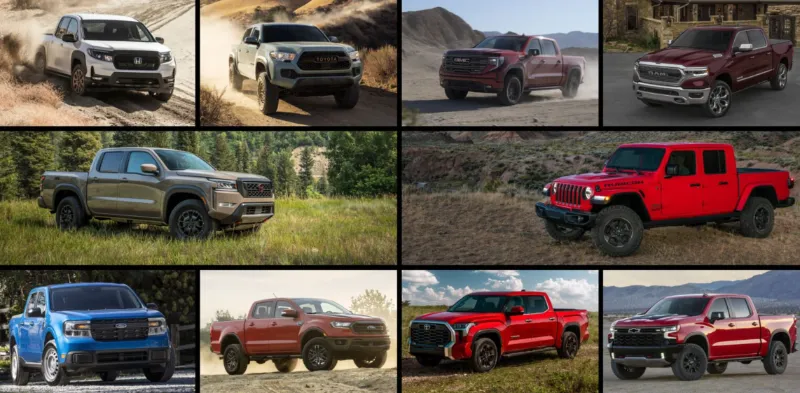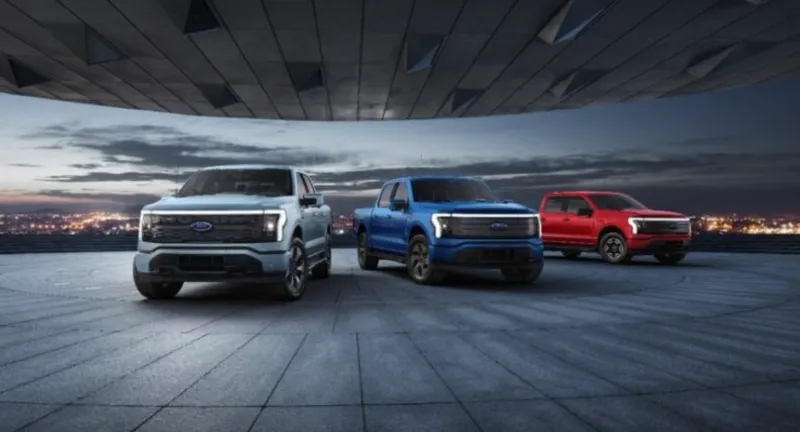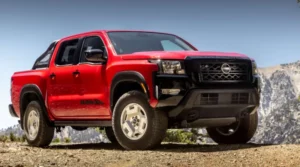Do you want to rent a pickup truck? Here’s What You Should Know. So you’re looking for a pickup truck but don’t think you can afford one outright? Leasing could be the solution. Leasing a pickup truck provides you with all of the practical benefits of owning one while allowing you to pay less upfront and spread your costs out over a longer period of time. But before you commit to leasing a pickup truck, there are a few things you should know. In this blog post, we’ll go over everything you should think about before signing on the dotted line and leasing a pickup truck, such as lease terms, mileage restrictions, your budget, and more. Are you ready to jump in? Let’s get started!

A Brief Summary of the Key Points
When leasing a pickup truck, you should examine your budget, required features, intended use of the vehicle, the dealership or lender that offers the best terms, and the duration of ownership you intend to have. You should also investigate the different models and compare them side by side to get the most bang for your buck.
Size Matters: What Truck Size Is Best For You?
Size does matter when it comes to leasing a pickup vehicle. Depending on your needs, a larger vehicle will be required to transport heavy or bulky things such as furniture or building supplies. Do you really want to limit yourself and find yourself in need of another truck soon after leasing the first? That would be an additional cost that might easily be avoided with appropriate planning. On the other hand, if you merely use it for everyday duties, a smaller model may be sufficient.
The challenge is to figure out how big of a load you’re going to transport and plan accordingly. If you’re going to be carrying large stuff, such as furniture or appliances, you might want to go for a mid-size to large-size pickup truck. A compact pickup should suffice if all you need is something for occasional hauling of lightweight objects on everyday errands.
However, when deciding on a size, it’s also crucial to consider fuel efficiency. Larger trucks use more fuel and therefore cost more at the pump. It is critical to consider these elements when making a decision.
Once you’ve determined which size of vehicle is appropriate for your purposes, it’s time to learn about the many types and sizes available. This allows you to precisely analyze which type of lease would be most beneficial to you.
According to Edmunds, leasing a pickup truck can let you avoid monthly payments by merely paying for the truck’s depreciation value.
According to Money Under 30, one disadvantage of leasing is that you may have limited customization and modification possibilities.
The average monthly lease payment in 2019 was $453, according to Experian, compared to $570 for financed autos.

Understanding the Various Truck Types and Sizes
Understanding the various pickup truck kinds and sizes is essential for making an informed selection on which one to lease. SUVs are larger than mid-size or full-size trucks. This can be advantageous for individuals who demand extra space for passing passengers or moving heavy objects; however, it requires more gasoline and incurs additional insurance costs. A smaller vehicle, such as a compact, may offer better fuel efficiency when traveling but may not be capable of hauling as much weight as larger vehicles. However, all sizes of vehicles have advantages—it only depends on your main space and budget needs.
If you’re still undecided about which size vehicle is best for you, consider going on test drives with dealership staff. During a test drive, you can get a sense of how the vehicle handles and whether it has adequate power for your job; this may help you decide whether a mid, full, or compact size is appropriate for you. Furthermore, if you are able, it may be beneficial to inspect actual cargo that you will be hauling on a regular basis and investigate online for opinions on different vehicles’ capabilities before leasing.
You’ve spent time examining sizes and completing web research; now it’s time to crunch the numbers and determine whether leasing a vehicle makes financial sense. It’s time to look through your finances and calculate the whole cost of leasing a truck.
Consider the Additional Costs of Truck Leasing
Now that you’ve examined your options and decided to lease a pickup vehicle, you need think about the additional expenditures associated. There is more to leasing a pickup truck than just the monthly payments; insurance, petrol, and maintenance are all significant aspects to consider.
When determining the cost of an insurance plan for a rented pickup truck, there are two options. Some argue that leasing provides for lower insurance rates because drivers do not own the car and thus do not risk as much financial loss if something goes wrong. Another point of view is that if the car requires repairs after the accident, the user will be responsible for them and will need to purchase more coverage to compensate for such losses. “Leasing a car can sometimes mean paying higher premiums,” according to CarInsurance.com. […]. Leasing can boost insurance costs by up to 20% in some circumstances.” This information indicates to obtaining more coverage when considering insurance for a leased pickup vehicle.

Before entering into a leasing agreement with a dealership, consider the cost of gas. While most pickups have outstanding fuel efficiency, the increased weight of materials driving around with you, as well as the size of the vehicle itself, can inflict more wear-and-tear on your wallet when you fill up at the pump over time. Make sure you consider this into your budget so you may continue to use your truck without having to use more financial resources than you had planned for.
Finally, when considering leasing a pickup truck, one should keep in consideration the cost of vehicle maintenance. Keep up with oil changes as regularly as possible to avoid larger engine troubles that could result in higher repair expenditures. Having said that, make sure that any lease agreement you get into clearly explains its maintenance requirements from the outset so that proper care is done while utilizing it during your time as its lessee.
Considering all of these aspects when considering whether or not to lease a truck can be a difficult balancing act; but, if done correctly, it can set you up beautifully for years of use. Following that, we’ll look at how understanding the insurance and maintenance costs associated with such a move can help make this decision easier.
Costs of Upkeep and Insurance
When leasing a pickup truck, you should examine more than just the monthly payments; you should also include maintenance and insurance expenditures. Because pickup trucks have more intricate mechanical systems, maintenance expenses are frequently higher than for smaller cars. When leasing a pickup truck, remember to factor in the expense of regular oil changes, tire rotations, and brake repairs.
Some claim that the better resale value and reduced depreciation associated with larger vehicles such as trucks may offset maintenance costs. They also note out that pickups’ size and weight may make them less prone to wear and tear, which may help offset long-term maintenance expenses over time.

Pickup truck insurance costs are often higher than sedan insurance premiums since they are more expensive to replace and pose a greater liability risk when driven. This higher expenditure, on the other hand, may be offset by their greater payload capacity, which can often obviate the need for renting a van or trailer for moving heavy cargo loads – something that is not usually covered by vehicle insurance coverage.
In brief, there are numerous elements to consider when calculating the maintenance and insurance costs of leasing a pickup truck. Estimating them beforehand might help you plan ahead and account for those costs when deciding which vehicle makes the most financial sense for you. As you move on with your plans to lease a pickup truck, now is a good time to gather information about the numerous model alternatives on the market today. This will help you choose one that matches both your needs and your budget in the future.
Gather information about the many truck models that are available.
Now that you’ve considered the prospective costs of leasing a pickup truck in terms of maintenance and insurance, it’s time to evaluate the many models accessible to you when determining which truck is most suited to your needs. Whether you want a heavy-duty vehicle with plenty of hauling capacity or something more lightweight for trips to the hardware store, there are a number of aspects to consider when you assess your options.
It can be beneficial to research characteristics such as gross vehicle weight ratings or payload capacity, which will tell you how much a particular truck can transport and tow. There are also cab size, bed length, engine type, fuel economy ratings, and overall cargo space to consider. It’s critical to do your homework on them so that any model you buy lasts longer than a few months before needing an upgrade or replacement.
Finally, don’t forget to inquire about any optional features such as side steps, roof racks, toolboxes, running boards, rear view cameras, and other equipment that may be required for your specific job demands. Taking the time to learn as much as you can about all of these features will most likely help you make the most informed decision when buying a truck that matches your demands.
Once you’re confident and have gotten enough information from each accessible option, it’s time to start comparing features and alternatives to get the best pickup truck lease offer for you.
Examine Your Budget and the Cost of Leasing a Truck
After discussing the various vehicle sizes and shapes, it is time to analyze the cost of leasing a pickup truck. Leasing a truck can surely have its benefits. It sometimes comes with lower monthly payments than buying and immediate access to a newer model, but before signing any paperwork, make sure you understand exactly what you owe. The first step should be to examine your budget and determine whether this is a reasonable investment for you right now.
Taxes, registration, and the necessity to obtain your own auto insurance plan are all included in the cost of leasing a vehicle. Understanding the length of your lease and developing an accurate estimate of the entire cost is one element to consider when investigating possible payment plans. Don’t forget to factor in extra fees such as maintenance, which can quickly add up.

Leasing a truck may appear to be an appealing alternative for someone on a tight budget, but there are several factors to consider when deciding between ownership and leasing. On the one hand, acquiring a vehicle gives individuals full ownership, whereas leasing allows them to use the vehicle with limits for a set length of time. People who wish to keep their trucks in good condition or who require a truck for heavy transportation should instead buy one outright, since this gives them greater control over how long it will be serviceable.
At this point, it is critical to explore all options and weigh all potential fee differences before making a decision. This ensures that readers can confidently select between leasing and purchasing a pickup vehicle, establishing a workable and optimal financial plan from the outset. Finally, thoroughly examining one’s budget and considering both sides of each argument are critical stages in making an informed decision on whether to buy or lease a pickup truck.
Once readers are confident in their decision to buy or lease a pickup truck, they may move on to designing a payment plan that meets their specific lifestyle requirements.
Important Reminders
When deciding whether to lease or buy a pickup truck, it is critical to understand the cost of leasing, which includes additional fees such as taxes, registration, and insurance. Analyze your finances to see if leasing is a viable option right now. Ownership provides you more control over the duration of upkeep, whereas leases have time constraints. Examine each side and determine which one best suits your lifestyle requirements.
Creating a Payment Strategy and a Budget
Setting a payment plan and budget for leasing a truck is ultimately determined by your financial status as well as the cost of the lease itself. Making sure to thoroughly research and examine your budget is critical to avoiding financial overspending. When leasing a truck, there is frequently an initial upfront price that must be paid. This fee is frequently in the tens of thousands of dollars. As a result, it’s critical to determine whether you can afford such a high price right away. Furthermore, monthly payments will vary depending on the length of the lease and other circumstances, such as whether any new features were added or if maintenance fees are included in the rental agreement.
Related: How Can You Effectively Sell Your Car?
It is critical to understand that leasing a truck may not always make financial sense. Compare the difference between lease payments and financing a purchase outright for the same vehicle when deciding whether leasing is good for you. Depending on your budget, you may be able to save more money by purchasing in full rather than leasing for a specific amount of time. Finally, it’s critical to investigate and evaluate the prospective costs of each choice to choose which is best for you.
In any case, deciding whether to pay through purchase or rental is simply one component of a much larger equation when it comes to leasing vehicles. Moving forward, it’s important to go over some of the additional charges associated with truck rentals before agreeing to a leasing arrangement.
Compare and contrast features and alternatives
It is critical to analyze the features and choices offered when leasing a pickup truck in order to make an informed selection. To begin, when researching individual models, consider features like as towing capability, gas mileage, safety ratings, and, of course, price. Each model may include different features or packages that are best suited to the needs of the user. Someone who frequently tows a trailer, for example, will most certainly require more power than someone who simply uses their truck for weekend errands.
Another element to consider when leasing a pickup truck is conducting a comparison of the available options. In general, prospective purchasers have two options: new or used models. A new car provides benefits such as the dependability and ideal performance that you would expect from a brand-new model, as well as enhanced warranty coverage. Used cars, on the other hand, may provide a better value due to depreciation associated with new automobiles, which causes a decline in price over time.
Before making any commitments, the buyer must ultimately select which aspects and alternatives are most suited to their demands and budget. Comparing models from various manufacturers can be advantageous, but it can also be overwhelming, therefore it is beneficial to reduce the choices based on specified criteria such as attainable jobs, price, and desired features. Knowing each manufacturer’s reputations and quality rankings might aid in determining which brands provide the most satisfaction or value. Furthermore, obtaining input from reliable sources such as family members or friends who have purchased the same sort of car can assist purchasers in developing an understanding of personal experiences with specific models or manufacturers. The goal is to ensure that purchasers have enough information before making a commitment to buy new or used.
Frequently Asked Questions (FAQs)
What are the advantages and disadvantages of leasing a pickup truck?
The main advantage of leasing a pickup truck is that you can drive a higher-value vehicle for a lower monthly expense than you would if you bought it altogether. Furthermore, because the truck’s value is fixed at the end of the lease, you know exactly how much you will owe when the lease expires. Furthermore, because leasing generally involves little or no down payment, it might be a cost-effective method to get started with vehicle ownership.
The major disadvantage of leasing a pickup truck is that it sometimes comes with mileage and wear and tear limits. You’ll also most likely need to have the truck insured for the duration, which could add to your overall costs. Finally, after the lease expires, you no longer own the pickup; if you wanted to keep it, you would have to buy it or renew your lease.
What are the key questions to ask while leasing a pickup truck?
The most crucial questions to ask while leasing a pickup truck are:
1. What is the entire lease cost, including taxes and fees? To minimize surprises, you should make sure you understand what you’ll be paying.
2. Is it possible to get an extended warranty? An extended warranty can provide you with peace of mind in the event that mechanical or maintenance concerns emerge during the duration of your lease.
3. Is roadside assistance included in the lease? Is it feasible to add it on if not? In the event that you become stranded on the road due to a breakdown or other mishap, roadside assistance might be a lifesaver.
4. What kind of car examination is required prior to signing the lease? Knowing what will be verified before to signing can help ensure that you do not incur any unnecessary costs or expenses later on.
5. What are the consequences of breaking your lease early? Before signing, make sure you understand all of the consequences of breaking your lease so that you are well prepared if such a circumstance arises.
What are the standard terms and conditions for leasing a pickup truck?
The following are typical terms and conditions for leasing a pickup truck:
• Lease length – Most leases are for a set amount of time, usually between two and three years.
• Mileage restrictions – Many leases include mileage restrictions that must be followed. The specific mileage limits may differ between leasing companies, so verify ahead of time.
• Maintenance requirements – In order to keep the lease in good standing, the vehicle must be maintained on a regular basis in accordance with manufacturer specifications. This includes routine oil and filter changes, tire rotations, tune-ups, and other maintenance.
• Early Termination Fees – If you need to end your lease before the end date, you may be charged an early termination fee.
• Depreciation Costs – The value of the car depreciates over time, and this cost will be passed on to you if you opt not to purchase the vehicle, making it more profitable in the long run to purchase rather than lease.
Before signing any agreements, it is critical to read through all of the terms and conditions connected with leasing a pickup vehicle.


